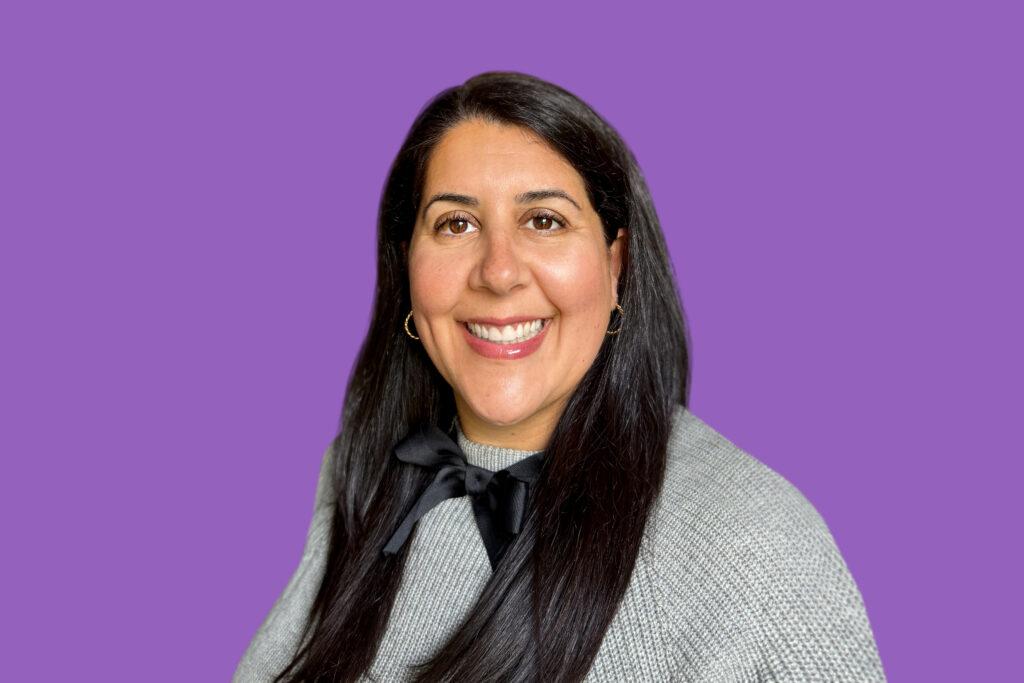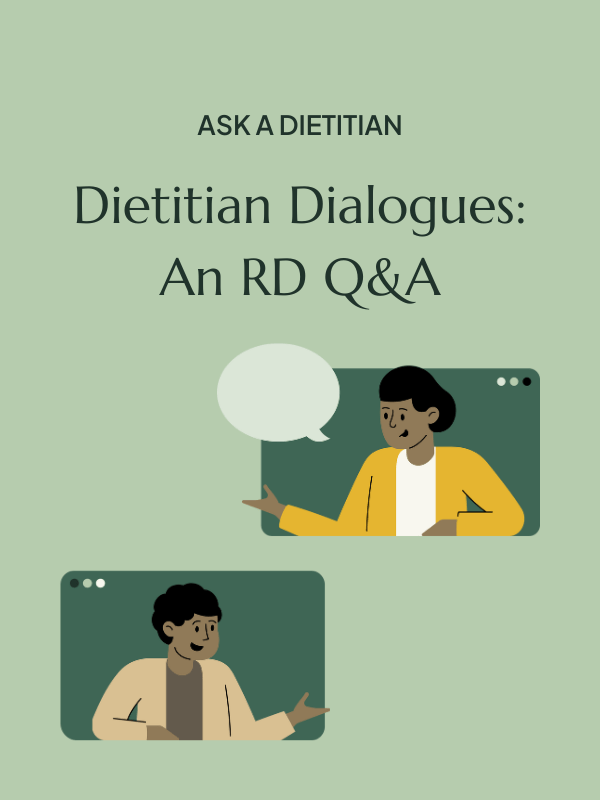Nutrition is often considered an individual journey—something happening internally, that impacts only you. But as any 30-year-old who has a compulsion to clean their entire plate will tell you, the family we grow up in, and their understanding of healthy eating and nutrition, plays a significant role. And all too often, when we grew up in a family with a warped idea of food, these patterns can plague us well into adulthood.
Now, there is a generation of parents wanting to make sure they pass on non-judgmental, science-backed ideas about food to their families, as well as help young kids develop a positive relationship to food and eating, creating a healthier future for everyone around the table. This is often referred to as “family nutrition.” To discuss this, we tapped Culina Health RD Stacey Wiesenthal, MS, RD, who specializes in pediatric and family nutrition, to go a bit deeper on what it means to focus on the entire family on a nutrition journey.

About Stacey Wiesenthal, MS, RD
How did you get started as an RD?
I was always very interested in food. I have a younger brother with Autism and he was always very underweight, so we had to get very creative with getting him to eat healthy food and gain weight. He saw many different healthcare professionals—from dietitians to occupational therapists and speech therapists— and watching them work with him to achieve small goals was very inspiring. I was very interested from a young age. I remember going for a walk with my mom when I was in 8th grade and telling her I wanted to be a dietitian, and I never changed my mind from there.
How and why did you begin to specialize in family nutrition?
Becoming a mom six years ago really impacted me both personally and professionally. I grew up in a house where desserts and treats were put on a pedestal and we had a lot of rules around food, what we could eat, and when we could eat it. I knew after having kids I wanted to take a neutral approach towards food while promoting healthy eating habits and take the pressure away. I started doing a lot of reading and learning to create the food environment I wanted in our home. This started to get me more interested in family nutrition and it grew from there. Over the years I have helped a lot of friends dealing with picky eating in their families (as well as dealing with it in my own daughter), in addition to maximizing intake to increase nutritional value.
About Family and Pediatric Nutrition
How do you define family nutrition?
I think about family nutrition as meeting the nutritional needs of all family members to help foster growth, support cognitive development, keep food fun and enjoyable, and create a neutral environment that is free from shame, judgment, or moralizing around food.
Why is family nutrition important?
These days, families are busier than ever, and maintaining time to regroup as a family is so important. Mealtimes are a perfect place to connect, share stories and come together after a long day. Many adults have lasting memories and nostalgia around sitting at the dinner table with their parent(s) and siblings. Furthermore, this is a critical moment to pass on positive habits. Kids watch our every move and when we can demonstrate healthy habits at family meals, they will begin to emulate them. Whether it’s what we choose to put on our plate, the joy we take in cooking and eating, how we talk about our bodies, or how we take care of ourselves—if we can start to establish healthy routines and habits at a young age it will make an even bigger impact later in life.
How do you work with Culina Health patients on family nutrition?
Getting kids involved is a really fun way to have them be invested in the process. I suggest looking through cookbooks together and picking new recipes as a family to try. Going to the grocery store or a farmers market together and having the kids pick a new food to include with a meal is really fun—there’s a feeling of you’re all in this together, trying new things as a family. When it’s age appropriate, asking the kids to help with cooking and getting them their own set of supplies can make them feel really special, included, and lead them to assume more ownership over their relationship to food.
Nutritional Journeys as a Family
What are some common challenges that families you work with face regarding nutrition?
Some challenges I see most often include picky eating, needing quick and easy meal ideas instead of relying on fast food, finding balance, introducing new foods, making a healthy choice, and increasing the variety of what a family is eating in line with recommended dietary guidelines. Also, most people do not receive any type of nutrition education in school or growing up—so I work with people to fill in those gaps, and deliver empowering information they can use forever, like learning to read food labels.
Can you provide an anecdote of a recent journey you had with a family nutrition patient?
I had a young client who needed to gain weight, and their parents were on two very different ends of the spectrum of how they should go about doing this. It was important to help them come together so meal times weren’t stressful, so they could create a relaxed and positive environment for their child while prioritizing the child’s health goals. Working together, we were able to achieve this over time and it’s been better for the entire family overall.
What are some tips you have for helping families optimize their nutrition and work through challenges that arise?
- Let kids help plan meals and snacks so they develop a sense of not only what they like, but also what makes them feel good, and connect to their hunger and fullness cues.
- Stock the house with nourishing, nutrient-dense foods for a healthy snack or meal (my family calls these “energy foods”, but also keep “sugary” foods on hand to show that no foods are off-limits.
- Be a role model. We often emulate the habits of those around us, this goes for food too.
How do nutritional challenges impact families differently?
Everybody is coming from a different experience and has different needs. For example, I have worked with families where one family member needed low sodium and needed guidance on how to incorporate this for the whole family so she wasn’t making 3 different meals every night. Also, food insecurity or having access to fresh food can be a challenge, so some kids might only see a fresh fruit or vegetable at school. As an RD, my job is to meet people exactly where they are and truly understand how to meet their distinct needs as a family. There are many ways to create a healthy meal, and I want to arm my patients with the tools they need to create the lifestyle that works for their family.
Work with a Culina Health Registered Dietitian
Whether you’re looking to heal your own relationship to food, or seeking tips on how to support nutrition for your children, or the entire family, Culina Health is here for you. Get tailored advice that’s sustainable and attainable to make lasting changes for your health and wellbeing. The best news is that we’re in-network with most major insurers. Book your first session today—you could pay as little as $0 out of pocket with insurance coverage.





